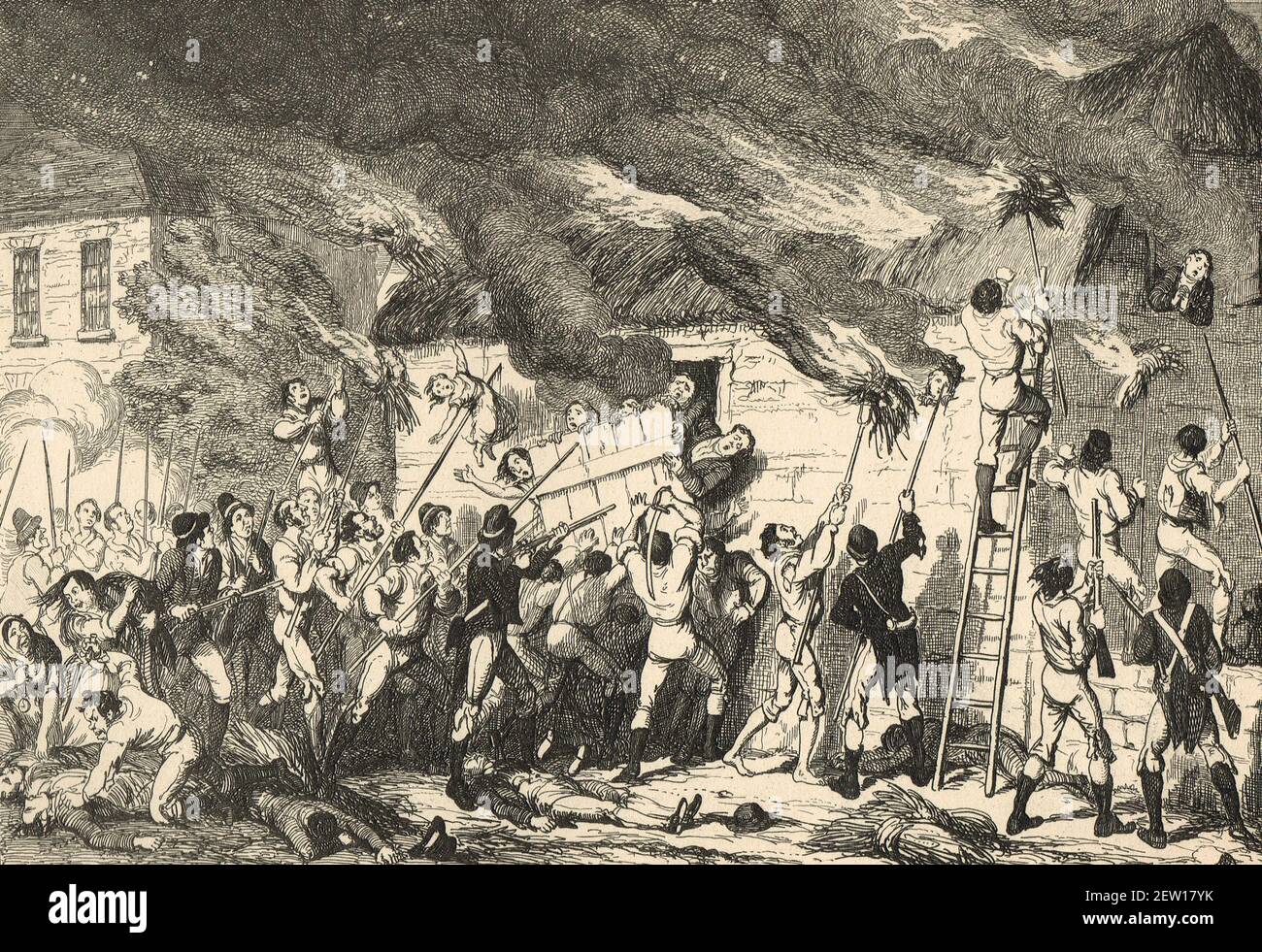The Scullabogue massacre, near Newbawn, County Wexford, 5 June 1798, Insurgents massacred noncombatant men women and children, most of whom were Protestant, held prisoner in a barn which was then set alight, during the Irish Rebellion of 1798 in retaliation for the British military setting fire to a house containing wounded at the nearby battle of New Ross

Image details
Contributor:
Historical Images Archive / Alamy Stock PhotoImage ID:
2EW17YKFile size:
23 MB (2.3 MB Compressed download)Releases:
Model - no | Property - noDo I need a release?Dimensions:
3424 x 2347 px | 29 x 19.9 cm | 11.4 x 7.8 inches | 300dpiDate taken:
1887More information:
This image could have imperfections as it’s either historical or reportage.
Illustration by George Cruikshank (1792 - 1878) from History of the Irish rebellion published 1887. Info from wiki: The Scullabogue massacre was an atrocity committed in Scullabogue, near Newbawn, County Wexford, Ireland on 5 June 1798, during the 1798 rebellion. Insurgents massacred up to 200[1] noncombatant men women and children, most of whom were Protestant, who were held prisoner in a barn which was then set alight. Thomas Cloney, a rebel commander with the rank of General, present at the Battle of New Ross, reported: The wretches who burned Scullabogue Barn did not at least profane the sacred name of justice by alleging that they were offering her a propitiatory sacrifice. The highly criminal and atrocious immolation of the victims at Scullabogue was, by no means, premeditated by the guard left in charge of the prisoners; it was excited and promoted by the cowardly ruffians who ran away from the Ross battle, and conveyed the intelligence (which was too true) that several wounded men had been burned in a house in Ross by the military.[5] The news had incensed certain elements of the rebel force stationed at Scullabogue, who joined with the deserters in agitating for revenge against the prisoners. The prisoners' guards twice prevented the gathering mob from harming them but eventually gave in to the crowd by allowing the executions by musket-shot of over a dozen particularly hated individuals. However, all semblance of control was quickly lost and the barn was soon torched. People trying to escape the barn were shot, stabbed and beaten to death or forced back into the flames. Only two men are thought to have escaped the flames of Scullabogue Barn. One was named Richard Grandy, and the other was Loftus Frizzel. At least twelve, and possibly thirteen men alleged to have taken part in the massacre were executed after the rebellion was suppressed; a further two were transported.